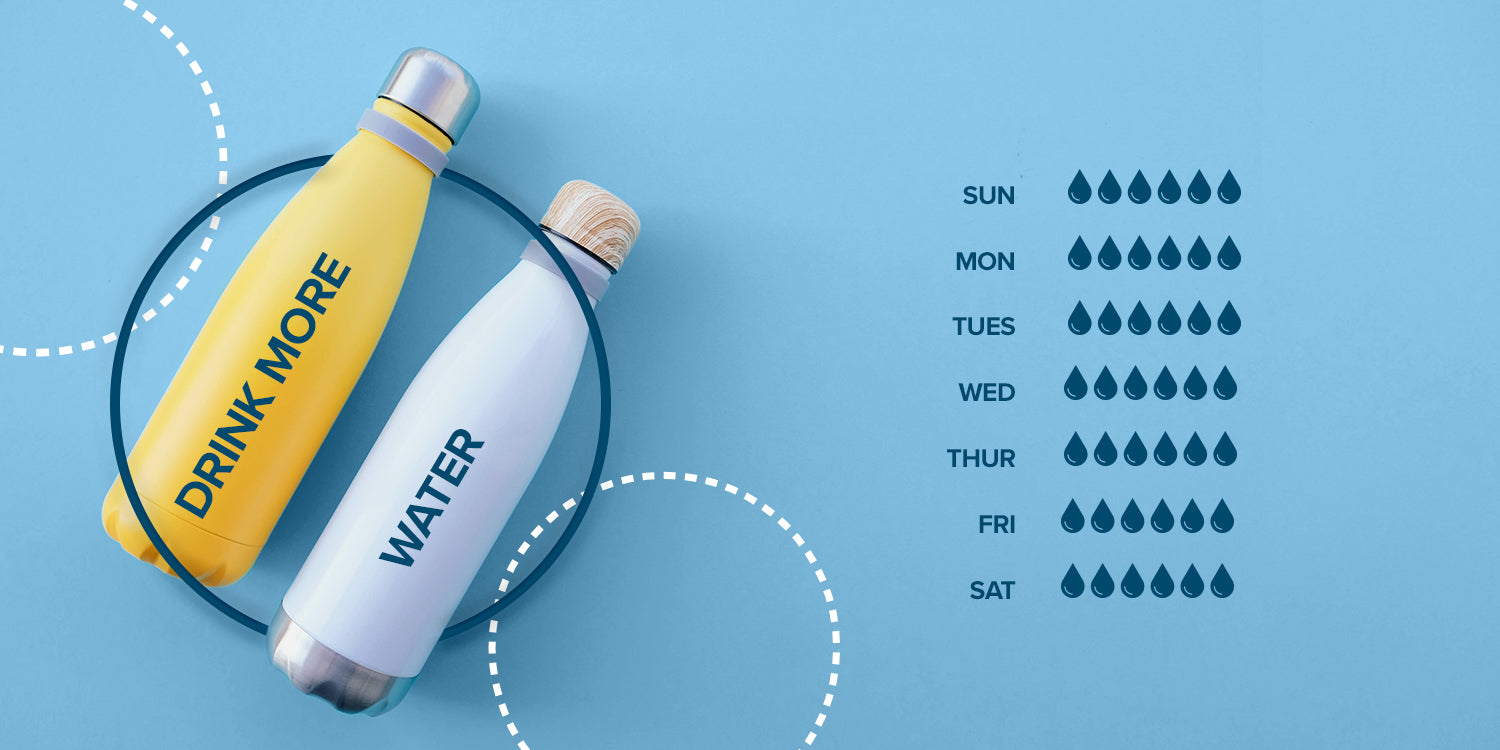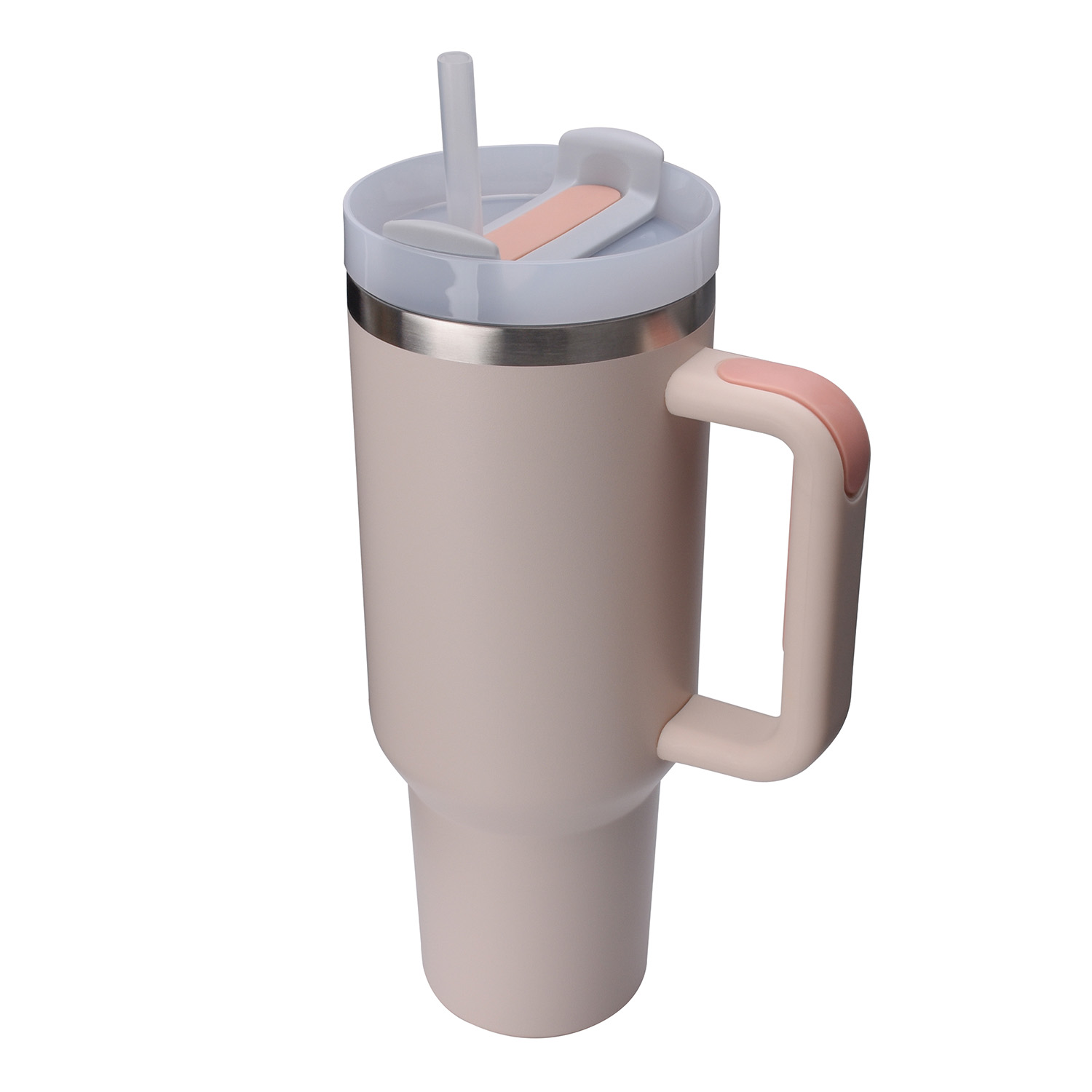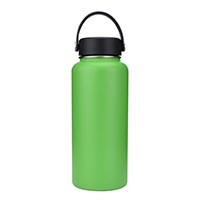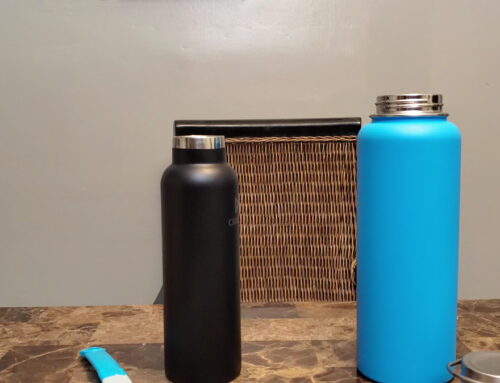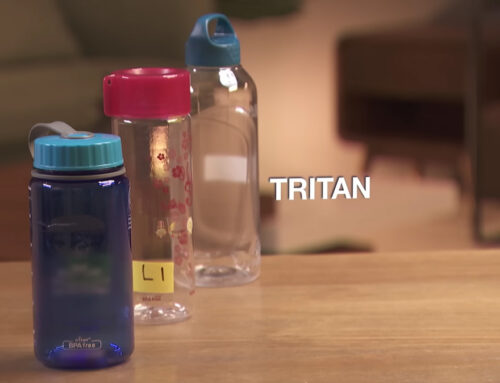Contents
- 1. What is the importance of staying hydration?
- 2. What has influence on your water needs?
- 3. How to calculate how much water a person should drink a day?
- 4. What is the best time to drink water?
- 5. What if you drink too much water a day?
- 6. How to know whether you take enough water?
- 7. FAQ – What else you may want to know about drinking water?
- 7.1 What are the cautions for drinking water?
- 7.2 Can you drink other fluids to replace water intake?
- 7.3 What are the most hydrating fruits?
- 7.4 What are the most hydrating vegetables?
Water is essential for our bodies to function properly, as it plays a vital role in many physiological processes. However, it can be challenging to know exactly how much water we should be drinking every day. While the “8 glasses a day” rule has been a long-standing guideline, the amount of water you need can vary based on factors such as your age, gender, weight, activity level, and even the climate you live in. In this article, we will explore how much water you should drink a day, as well as some healthy hydration tips to help you stay properly hydrated.
1. What is the importance of staying hydration?

Dehydration can negatively impact your coordination and balance, increasing the risk of injuries. On the other hand, proper hydration ensures that your muscles and joints are well lubricated, allowing for smoother movement and better overall performance.
In addition to its direct effects on physical performance, hydration also plays a significant role in regulating body temperature. When you’re active or exposed to high temperatures, your body sweats to cool down. This sweat, primarily composed of water, evaporates from your skin and helps dissipate heat. If you’re dehydrated, your body has a harder time sweating and maintaining a normal body temperature. This can lead to heat-related illnesses such as heat exhaustion or heatstroke, which can be serious and even life-threatening. Therefore, staying hydrated is vital for supporting your body’s thermoregulation and preventing heat-related complications.
2. What has influence on your daily water needs?
The commonly mentioned “8 glasses a day” guideline, which corresponds to approximately 2 liters or half a gallon of water, is a general recommendation that may not be suitable for everyone. It is a simplified way to encourage people to stay hydrated, but it doesn’t take into account the various factors that influence water requirements. Water needs can vary significantly depending on individual factors and circumstances:
- Age and Gender: The water requirements can vary based on age and gender. Adults generally have higher water needs than children, and males typically have higher requirements than females.
- Figures: Larger individuals usually need more water than smaller ones due to differences in body mass and surface area. Additionally, people with higher muscle mass typically require more water than those with higher body fat percentage.
- Physical Activity: The level of physical activity you engage in affects your water needs. If you lead an active lifestyle, exercise regularly, or participate in intense physical activities, you will require more water to compensate for fluid losses through sweat.
- Health Conditions: Certain health conditions like fever, diarrhea, vomiting, or excessive sweating due to illness can result in increased water requirements to maintain hydration levels. It’s important to consult a healthcare professional for specific guidance in such cases.
- Environmental Conditions: Altitude and exposure to high altitudes can increase your water needs. At higher altitudes, increased respiration and urination can contribute to fluid loss.
- Climate and Temperature: Hot and humid weather conditions can cause increased perspiration, leading to higher water requirements. In such conditions, it is important to drink more water to prevent dehydration requiring you to drink more water.
So stop using the “8 glasses of water” to guide all the people! It’s important to note that individual variations exist, and specific factors like medications, medical conditions, and lifestyle choices may further influence water requirements. It’s always advisable to listen to your body’s signals and consult a healthcare professional for personalized advice regarding your daily water intake. Do not drink water from plastic water bottles.
3. How to calculate how much water should a person drink a day?
If you are curious about the water intake of yours, please follow the steps to calculate your estimated daily water needs:
Step 1: Determine Your Body Weight
The amount of water you need can be based on your body weight. A common guideline is to drink 0.5 to 1 ounce of water per pound of body weight. For example, if you weigh 150 pounds, you would need to drink between 75 to 150 ounces of water per day.
Step 2: Consider Your Activity Level
This is the step especially for those who exercise. Your physical activity level can also influence your water requirements. If you exercise regularly or engage in other forms of physical activity, you will need to drink more water for your fluid losses through sweating. As a general guideline, you can add the following approximate amounts to your BMR:
- Light activity: Add 0.3-0.4 liters (10-13 ounces) of water.
- Moderate activity: Add 0.5-0.7 liters (17-24 ounces) of water.
- Intense activity: Add 0.8-1 liter (27-34 ounces) of water.
Notice: Consider the Environment and Climate as well as Special Circumstances
The environment and climate you live in can also impact your daily water needs. Hotter and drier climates can cause more water loss through sweating and may require an increase in daily water intake. Certain medical conditions or medications may affect your water needs, and you may require more or less water than the general population. Consult with a healthcare professional for guidance if you have specific concerns.
Here we’ll show you an example.Let’s say you weigh 160 pounds and exercise moderately for an hour each day. Your estimated daily water intake would be:
- 80-160 ounces of water per day (based on 0.5-1 ounce per pound of body weight)
- Plus an additional 16-20 ounces of water for every pound of body weight lost during exercise (let’s assume you lose 1 pound during your workout)
- This would add an extra 16-20 ounces of water to your daily intake, bringing your total to around 96-180 ounces of water per day.
Keep in mind that these calculations are general guidelines and that individual needs can vary. It’s always a good idea to listen to your body and stay hydrated throughout the day. If you have specific concerns or require personalized recommendations, consult with a healthcare professional or a registered dietitian.
4. When is the best time to drink water?
Wholesale tumblers with handles: USD 3.59
There is no so-called “best time” to drink water. The timing of water consumption can vary based on individual preferences and daily routines. Here are a few suggestions on when to drink water:
- Morning: Drinking a glass of water in the morning can help hydrate your body after the overnight fast. It’s a good practice to have a glass of water as soon as you wake up to replenish the fluids lost during sleep.
- Before meals: Consuming water before meals can help with digestion and promote a feeling of fullness, which may help with portion control. Drinking water 30 minutes before a meal can be beneficial.
- During meals: Having water with your meals can aid in digestion and help with swallowing and breaking down food. Sipping water between bites can also prevent overeating.
- Between meals: Drinking water between meals can help maintain hydration levels throughout the day. You can have a glass of water whenever you feel thirsty or as a regular habit, such as sipping water every hour.
- Before and after exercise: It’s important to stay hydrated before, during, and after exercise. Drink water before your workout to ensure proper hydration, sip water during exercise to replace fluids lost through sweat, and consume water after your workout to replenish fluid levels.
- Based on personal needs: Pay attention to your body’s signals and drink water whenever you feel thirsty. Additionally, factors like hot weather, physical activity, or certain health conditions may require increased water intake.
5. What if you drink too much water a day?
Drinking excessive amounts of water in a short period of time can lead to a condition called water intoxication or water poisoning. When you drink more water than your body can effectively process, it puts a strain on your kidneys, which are responsible for filtering and eliminating excess water from the body. If your kidneys are unable to handle the excessive water intake, it can lead to an imbalance in electrolytes such as sodium, potassium, and others. This imbalance can cause a condition called hyponatremia, which is characterized by low sodium levels in the blood.
Symptoms of water intoxication can include nausea, vomiting, headache, confusion, seizures, muscle weakness or cramps, and in severe cases, it can even lead to coma or death. However, it is important to note that water intoxication is relatively rare and typically occurs in extreme cases of excessive water consumption, such as in endurance athletes who drink excessive amounts of water without replenishing electrolytes.
6. How to know whether you take enough water?
So how to know whether I have enough water intake? This may be the question you may have most interest in now. Then we’d show you several ways to distinguish this in the daily life.
- Check your urine color and frequency: Generally, a pale yellow or clear urine color indicates proper hydration. Dark yellow or amber-colored urine may suggest dehydration. Additionally, if you are urinating approximately 4-7 times a day and the volume is within a normal range, it is typically a positive sign of adequate hydration.
- Monitor your thirst levels: Thirst is your body’s natural mechanism to signal the need for water. If you rarely feel thirsty and your mouth and throat are not dry, it is often an indication that you are adequately hydrated.
- Assess your energy levels and overall well-being: Sufficient hydration supports optimal bodily functions, including energy levels, cognitive function, and overall well-being. If you feel alert, have sufficient energy, and do not experience symptoms of dehydration (e.g., fatigue, dizziness, dry mouth), it is likely that you are adequately hydrated.
- Consider your activity level and sweat rate: If you engage in physical activity or exercise regularly, you may need to increase your water intake to compensate for fluid loss through sweat. If you are adequately hydrated, you should be able to maintain your activity level without excessive fatigue or muscle cramps.
- Evaluate your overall fluid intake: Take into account all sources of fluids you consume, including water, beverages, and water-rich foods like fruits and vegetables. Adequate fluid intake can be achieved through a combination of water and other hydrating sources.
7. FAQ – What else you may want to know about drinking water?
7.1 Can you drink other fluids to replace water intake?
Of course, you can consume other fluids to help meet your hydration needs and replace water intake. While water is the most effective and natural choice for hydration, there are several other beverages that can contribute to your fluid intake, such as fruit juices, milk, sports drinks, coconut water or clear soups and broths.
But it’s important to note that while these beverages can contribute to hydration, they may have additional ingredients or properties that should be taken into consideration. For example, some beverages may contain caffeine, which can have a diuretic effect and increase urine production. Additionally, certain drinks may be high in sugar or calories, so it’s important to consider overall dietary balance. Water remains the best choice for everyday hydration due to its simplicity, accessibility, and lack of additives. It is recommended to prioritize water consumption and use other beverages as alternatives when needed.
7.2 Are there any other ways to stay hydration besides water intake?
Yes, you can consume hydration fruits and vegetables. Many fruits and vegetables have high water content and are helpful to your daily hydration.
7.3 What are the most hydrating fruits?
Several fruits have high water content, making them excellent choices for hydration.
Watermelon: Watermelon is incredibly hydrating, with a water content of approximately 92%. It is not only refreshing but also provides essential nutrients like vitamins A and C.
Strawberries: Strawberries have a water content of around 91%. They are also packed with antioxidants, fiber, and vitamin C, making them a nutritious choice for hydration.
Pineapple: Pineapple contains about 87% water and is known for its tropical flavor. It also provides enzymes like bromelain and vitamin C.
Oranges: Oranges are approximately 87% water and are rich in vitamin C and other beneficial nutrients. They make a convenient and hydrating snack.
Peaches: Peaches have a water content of around 88% and are a juicy and hydrating fruit. They are also a good source of vitamins A and C.
Cantaloupe: Cantaloupe is about 90% water and is a sweet and refreshing fruit. It contains vitamins A and C, as well as potassium.
Grapefruit: Grapefruit is known for its high water content, which is around 88%. It is also a good source of vitamin C and fiber.
Raspberries: Raspberries have a water content of approximately 87%. They are rich in antioxidants and fiber, making them a healthy and hydrating choice.
Blueberries: Blueberries contain about 84% water and are packed with antioxidants and vitamins. They are a nutritious and hydrating fruit option.
Apples: Apples have a water content of around 86% and provide fiber and antioxidants. They are a convenient and hydrating snack.
Including these fruits in your diet can help you stay hydrated while enjoying their delicious flavors and obtaining valuable nutrients. Remember that fruits are not a substitute for drinking water but can be a valuable addition to your overall hydration efforts.
7.4 What are the most hydrating vegetables?
When it comes to hydrating vegetables, those with high water content can help replenish your body’s fluids.
Cucumber: Cucumbers are made up of about 96% water, making them one of the most hydrating vegetables. They are refreshing and can be added to salads, sandwiches, or enjoyed as a snack.
Celery: Celery is another vegetable that is predominantly water, containing about 95% water content. It is often consumed raw or added to soups, stir-fries, and salads.
Zucchini: Zucchini is a summer squash with about 94% water content. It can be grilled, roasted, or used in soups and stir-fries.
Tomatoes: Tomatoes have a high water content of around 94%. They are versatile and can be used in various dishes, such as salads, sandwiches, sauces, and soups.
Bell peppers: Bell peppers are rich in water, containing about 92% water content. They come in various colors and can be eaten raw, roasted, or added to stir-fries and salads.
Spinach: Spinach is a leafy green vegetable with a water content of approximately 91%. It is highly nutritious and can be used in salads, smoothies, sautés, and soups.
Iceberg lettuce: Iceberg lettuce has a high water content, around 96%. While it may not be as nutrient-dense as darker greens, it can still provide hydration and is commonly used in salads or as a lettuce wrap.
These vegetables can be beneficial for maintaining hydration due to their high water content, but it’s important to remember that overall hydration depends on a combination of factors, including water intake, diet, and lifestyle. Drinking an adequate amount of water is still essential for optimal hydration.

